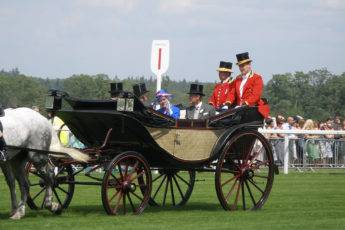Do You Know Why Sports Betting Is Banned in Most of the US?

As a way to better comprehend the current state of gambling regulations and legislation in the United States, it is important to look back. In spite of the fact that sports betting has often flouted gambling rules and anti-gambling legislation, the United States has a long history of gambling and sports betting. When it comes to gambling regulations and people’s desire to partake in sports betting, the United States has seen a protracted tug-of-war.
The lack of licensed and regulated U.S. sportsbooks allowed organized crime to fill the hole, and Congress responded by establishing gambling laws to stop the spread of sports betting.
Even if American hunger for legally set up licensed sportsbooks is as strong as ever, the pendulum has once again swung back in favor of it because views have changed in favor of allowing U.S. states to develop their own gaming laws without federal intrusion. To better understand American gambling regulations, we’ll take a look at different sorts of betting, such as lotteries and casino games.
States With The Strictest Betting Laws
– Texas
Gambling is illegal in Texas because of a constitutional prohibition, not because of normal legislation.
As a consequence, it will be impossible to pass any legislation. In addition to the backing of two-thirds of the members of Congress and the Senate, it must be put to a vote and be approved by the general public. Nevertheless, the possibility of legalized sports betting in Texas is growing.
In addition to Jerry Jones and Mark Cuban, prominent Texas sports club owners Tilman Fertitta and Mark Cuban of the Dallas Mavericks have publicly stated their support for legalized sports betting in the state of Texas. Sports betting proposals will be proposed in every parliamentary session, and only one or two will pass.
– Massachusetts
Individual states were unable to make their own decisions on sports betting until May 2018. In anticipation of a favorable verdict from the US Supreme Court, legislators in numerous states started introducing legislation to allow sports betting after hearing the oral arguments against PASPA in December 2017. This bill would also allow betting on sports online in MA, but for now MA residents can rely only on off-shore bookies.
When Massachusetts State Senator Eileen Donoghue filed the first sports betting bill in the state’s history in January 2018, she became one of those forward-thinking senators.
The bill never acquired significant support. It did, however, precipitate the introduction of a host of bills that would legalize sports betting in Massachusetts. The means by which the bills were implemented differed, but they all attempted to profit from the nationwide boom of sports betting. None of them, however, have become legislation.
History of Sports Betting
For this one, we have to go back a long distance to before the United States was ever a country. America’s first horse racing racecourse opened its doors in 1665 which was partially supported by lottery proceeds. Many people in the colonies thought of themselves as English subjects prior to the Revolutionary War, As a result, a large number of items were brought in from the United Kingdom. Horse racing, for example, was a cultural mainstay. The history of horse racing goes back as far as the 12th century, and people have been betting on horses ever since.
The American Stud Book – a catalog of all thoroughbreds in the United States — was published in 1868, and horse racing became a much more structured operation in the United States. Bookmaking was banned in the United States in the early 1900s, and that wave almost wiped off horse racing.
Gambling Developed an Unsavory Reputation in the US
Gangsters defying rules during Prohibition made sure drink, violence, and bookmaking would go hand-in-hand in the public consciousness. Baseball’s Black Sox incident, when members of the White Sox tried to manipulate the 1919 World Series, didn’t do the business any favors either. It became a default mechanism for sports decision-makers to say no to gambling on integrity rounds. The leagues toed that party line throughout the following century.
In 1949, Nevada legalized sports gambling. Sportsbooks in that area, on the other hand, went bankrupt due to a federal government tax on them of 10%, which is now set to be reversed.
In spite of notable point-shaving scandals at CCNY in 1951, North Carolina and NC State in 1961, Boston College in 1978, and Tulane in 1985, as well as baseball’s Pete Rose controversy, there was little good faith between gambling and organized sports. The Federal Wire Act of 1961 was a landmark piece of legislation enacted by Congress to rein in the illegal gambling industry.
Using wires to transfer information about bets over state boundaries was considered prohibited by law. As a result, interstate betting organizations were driven out of business or into the shadows by legislation enacted by Congress regarding travel, mail, and gambling materials.
Nonetheless, by the late 1970s, an independent commission concluded that two-thirds of the population gambled and that 80% supported it. Gambling is “inevitable,” according to the panel, and implementing laws against it is “difficult,” it said. Yet they insisted that existing gaming rules should be preserved.
Major League’s Understanding of Sports Betting Negative Effects
We ended up with PASPA, which acted as a federal prohibition on sports gambling, despite the fact that most states had already banned it. PASPA, which was put into law in 1992, mandated that states notify the federal government within a year if they intended to allow sports gambling. They’d be grandfathered in if they answered yes. The state of Nevada chose a broad range of gaming options. More restrictions were a priority for the state legislatures of Montana and Delaware. No sports betting would be available to residents of the other 46 states.
Before PASPA was passed, commissioners testified in front of Congress. Sports gambling was described as a “national scourge” by NBA commissioner David Stern at the time. With the Atlantic City casino sector on the verge of collapse, New Jersey residents voted in favor of allowing sports betting in a referendum in 2011.
Despite the fact that the NCAA and other major sports leagues sought to stop PASPA’s adoption and were victorious, the Supreme Court has now declared it an example of federal government overreach. Justices agreed with New Jersey that Congress had “commandeered” state regulatory authority by barring states from legislating on the matter, and that was enough to persuade them.
Share via:





Leave a Comment